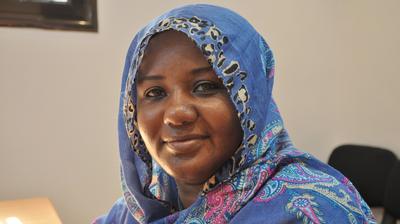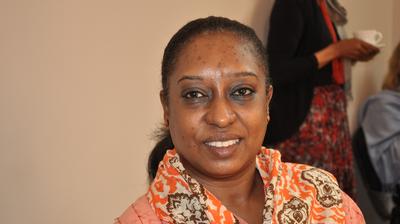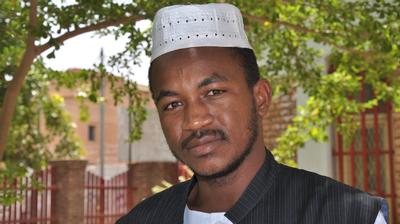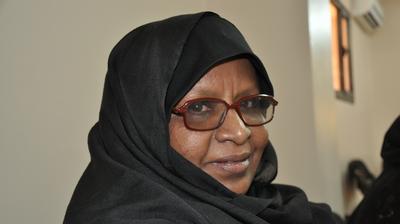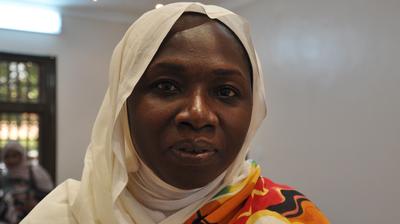Joining forces to put women´s rights on the agenda
Research on women’s political participation shows that pro-women laws and policies are more likely to be passed in countries with a strong, unitary and independent women’s movement. It is when women mobilize across political, religious, ethnic and ideological divides that their political demands are heard. How do you create a common ground for discussion in Sudan where the women’s movement is fragmented? You invite the stakeholders to a workshop.
Despite a fragmented women’s movement, the international and national focus on the importance of women’s rights is growing in Sudan. It is also a central research topic for the Norwegian-Sudanese partners in the ARUSS programme. In a workshop on women’s political participation organized by ARUSS at the Development Studies and Research Institute (University of Khartoum) in June, men and women from academia, civil society organisations, from NGOs, politicians and bureaucrats from state departments came together. The workshop allowed people with very different perspectives and attitudes, to meet, discuss, and identify issues in need of further research.
* ARUSS is a cooperation between CMI, the University of Bergen, Ahfad University, senior social science staff from the University of Khartoum and nine regional universities in Sudan and South Sudan.
* Contextual knowledge and close cooperation on every level are characteristic features of the ARUSS programme. Regional universities have a mandate to carry out research of particular importance to the regions in which they are located. Research topics are selected in close contact with local authorities and NGOs. Staff from the Norwegian partners, Ahfad University for Women and the University of Khartoum join in the research and support the regional universities with training and capacity building.
*Training and capacity building are central components in the ARUSS programme. The workshop in June was the first in a series of ARUSS workshops on gender, in which researchers from CMI, Ahfad University fro Women and the University of Khartoum will give lectures and lead discussions and group work.
-The main objective of the workshop was to encourage the participants to develop research questions that are relevant in both an academic as well as in a Sudanese context. Many of the participants come from an activist or political background and are eager to embark on research that will influence policy and ultimately better the situation of Sudanese women. The goal of the workshop is for the participants to identify the critical issues concerning women’s political participation in Sudan and to get the tools that will enable them to carry out high quality research, says Liv Tønnessen, senior researcher at CMI.
Wearing many hats
The Sudanese women’s movement has a long history. In the 1952, the Sudan Women’s Union was established and initially it included activists from different political backgrounds. Regardless of political orientation, they typically belonged to a certain social strata; an educated class of urban women. The politically active women were also the ones who got involved in research. Because the women’s rights activists have traditionally been wearing many hats, it has been difficult to separate women’s activism from research on women’s rights in Sudan.
-An important part of the training is to raise consciousness about the difference between the roles as researchers, politicians, activists and other civil society actors. In Sudan, you rarely come across a women’s rights activist who is not wearing several hats. If you are not clear on your background and motivation, input and critique based on your research findings can easily be dismissed, says Dr. Samia El Nagar, independent researcher and lecturer at Ahfad University for Women.
She stresses that this is particularly important for researchers, who have to leave any ulterior motives behind when they embark on a research project. If you want your research and research findings to influence policy makers, you need to make sure than no one can accuse you of being biased.
The participants at the workshop eagerly discussed how to combine their roles as academics and activists, and they are convinced that there is room to grow in both roles.
-It is when women organize across religion, ideology and politics to fight as a unity group they achieve something positive. This becomes extremely important in Sudan, where dialogue and cooperation between women inside the government, women activists and women in political parties is at a minimum, says El Nagar.
Paving the way for future research
Although there is a growing interest and activism for Sudanese women’s rights, there is still a lack of research on the topic. The concept of gender itself is often misunderstood and stigmatized. It is also highly politicized. To some, doing gender research is an equivalent to being a feminist advocating equality between men and women. The Islamists see feminism as a Western concept that is alien to Sudanese culture.
-Political participation is one of the issues that need to be further explored in Sudan. Sudan introduced a quota in the National Election Act of 2008 which ensured 25 percent women in National and state legislative assemblies after the 2010 elections. This is a milestone and victory for Sudanese women, but also an important topic to do research on. Ahfad University for Women have conducted extensive research on the mobilization for the quota. We hope that this workshop can pave the way for future research projects on the effects of the quota both at the national and at the local level, says Tønnessen.
Because of the introduction of quotas, Africa is currently on the forefront globally in terms of the number of women represented in National Parliaments. Post-conflict states like Rwanda and Uganda are leading the way. There is still a lack of research on the effects of quotas. At the workshop, the participants discussed why post-conflicts states in Africa are on top of the global ranking, how regional dynamics came into play in the quota campaign in Sudan, and the role of human rights frameworks and international aid.
Based on the vigorous discussions, chances are good that the workshop will result in several new research projects on women’s political participation. Throughout the training sessions, the participants stressed the importance of the workshop bringing together researchers and civil society actors not only from different sectors of society, but also from different regions in Sudan. Participants from several of the nine regional universities that are part of ARUSS met for the first time at the workshop. In an environment that has been very fragmented, workshops like these provide ample opportunities for networking and exchange of ideas
